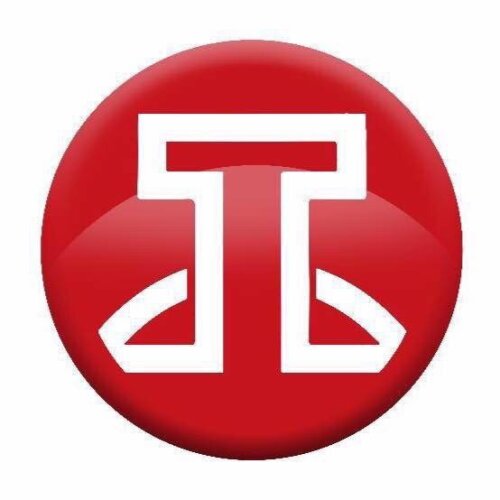Best Debt Capital Markets Lawyers in Haiphong
Share your needs with us, get contacted by law firms.
Free. Takes 2 min.
List of the best lawyers in Haiphong, Vietnam
About Debt Capital Markets Law in Haiphong, Vietnam
Debt Capital Markets (DCM) are a significant part of the financial system in Haiphong, Vietnam. In simple terms, DCM involves raising funds for entities such as corporations, government bodies, and financial institutions through the issuance of debt instruments like bonds, notes, and other securities. Haiphong, being an important industrial and economic hub, sees frequent activity in this space as companies and organizations seek to finance large-scale projects, manage cash flows, or refinance existing obligations. Governing this sector are a set of laws and regulations intended to ensure the stability and transparency of the financial market, protect investors, and facilitate access to capital for businesses.
Why You May Need a Lawyer
Engaging in the Debt Capital Markets often involves complex legal processes, documentation, and regulatory compliance. Here are some circumstances where legal advice is particularly beneficial:
- Structuring and issuing bonds or other debt securities
- Ensuring compliance with local and national financial regulations
- Negotiating terms between issuers and investors
- Drafting and reviewing prospectuses and disclosure documents
- Resolving disputes or defaults related to debt instruments
- Navigating cross border financing arrangements
- Obtaining or renewing licenses and regulatory approvals
- Conducting due diligence for mergers, acquisitions, or large asset purchases using debt finance
Due to frequent updates in legislation and the intricacies of financial transactions, having a lawyer ensures that all processes are legally sound and risks are minimized.
Local Laws Overview
Debt Capital Markets in Haiphong operate under a combination of Vietnamese national laws, government decrees, and regulations issued by key financial authorities. Some of the primary legal frameworks and regulatory bodies involved include:
- The Law on Securities 2019, which sets out detailed requirements for the issuance, registration, and trading of securities, including bonds
- The Civil Code and the Law on Enterprises, which establish general principles for contracts, obligations, and business operations
- The State Securities Commission of Vietnam (SSC), responsible for issuing guidelines, approving public offerings, and overseeing disclosures and reporting
- The Ministry of Finance and the State Bank of Vietnam, which manage overall market stability, currency controls, and broader regulatory functions
- Circulars and implementation guidelines specifically dealing with the public and private placement of debt securities
Locally in Haiphong, the Department of Planning and Investment and related municipal bodies may play roles in approval processes, especially for bonds issued by local enterprises or government entities.
Frequently Asked Questions
What are common types of debt instruments available in Haiphong's market?
The market typically features government bonds, corporate bonds, municipal bonds, and convertible notes. Each instrument has different terms and regulatory requirements.
Who can issue bonds or debt securities in Haiphong?
Public companies, private corporations meeting certain financial criteria, government bodies, and occasionally foreign invested enterprises, subject to approval and compliance with national laws.
Do foreign investors have access to Haiphong's Debt Capital Markets?
Yes, with some restrictions. Foreign investors may purchase certain categories of bonds, but must adhere to foreign ownership limits and registration requirements prescribed by authorities.
What legal steps are needed to issue a corporate bond?
Issuers need to prepare a prospectus, obtain approvals from the State Securities Commission, comply with disclosure and financial reporting requirements, and follow procedures for public or private placement.
What are the risks involved in DCM transactions?
Risks include market volatility, changes in interest rates, default by issuers, currency fluctuations, and regulatory changes. Legal advice can help identify and mitigate these risks.
How are disputes in Debt Capital Markets resolved?
Disputes can be settled through negotiation, mediation, or, if necessary, litigation in Vietnamese courts. Many contracts include arbitration clauses, so parties may resort to domestic or international arbitration as well.
Are there tax implications for issuing or investing in bonds?
Yes, both issuers and investors may be subject to corporate income tax, withholding tax, and other levies. Tax rates and obligations can vary depending on the nature of the transaction and the parties involved.
What due diligence is required before issuing or investing in debt?
Issuers need to verify their financial position and compliance status. Investors are encouraged to conduct extensive due diligence on the issuer's creditworthiness, the terms of the instrument, and applicable legal requirements.
How often do legal regulations change?
The regulatory environment is dynamic, with frequent updates from the government or regulatory bodies in response to market needs and international practices. Staying informed and consulting legal professionals is advised.
Is it possible to restructure or refinance existing debt?
Yes, subject to agreement by the debt holders and compliance with regulatory requirements. Legal counsel can assist in negotiating and documenting such transactions.
Additional Resources
Several governmental and industry organizations provide information and support for those involved in Debt Capital Markets in Haiphong:
- The State Securities Commission of Vietnam (SSC) - for regulatory updates and offering approvals
- Ministry of Finance - for circulars, tax issues, and policy guidance
- State Bank of Vietnam - for information on currency control and banking regulations
- Haiphong Department of Planning and Investment - for local investment procedures and enterprise support
- Vietnam Bond Market Association - for industry news, data, and best practices
- Established law firms with finance and capital markets practice in Haiphong and Hanoi
Next Steps
If you are considering participating in the Debt Capital Markets in Haiphong, the following steps are recommended:
- Define your objectives and gather initial information specific to your intended transaction or investment.
- Contact a law firm or qualified lawyer with expertise in DCM for a consultation to discuss your needs and understand your rights and obligations.
- Prepare documentation or questions in advance to make the most of your legal consultation.
- Stay updated on relevant regulatory developments through official sources and professional networks.
- Ensure compliance with all Vietnamese laws, including disclosure, registration, and tax regulations, to protect your interests.
A legal professional will provide tailored guidance based on your situation, help you avoid costly mistakes, and support you through every stage of your DCM transaction.
Lawzana helps you find the best lawyers and law firms in Haiphong through a curated and pre-screened list of qualified legal professionals. Our platform offers rankings and detailed profiles of attorneys and law firms, allowing you to compare based on practice areas, including Debt Capital Markets, experience, and client feedback.
Each profile includes a description of the firm's areas of practice, client reviews, team members and partners, year of establishment, spoken languages, office locations, contact information, social media presence, and any published articles or resources. Most firms on our platform speak English and are experienced in both local and international legal matters.
Get a quote from top-rated law firms in Haiphong, Vietnam — quickly, securely, and without unnecessary hassle.
Disclaimer:
The information provided on this page is for general informational purposes only and does not constitute legal advice. While we strive to ensure the accuracy and relevance of the content, legal information may change over time, and interpretations of the law can vary. You should always consult with a qualified legal professional for advice specific to your situation.
We disclaim all liability for actions taken or not taken based on the content of this page. If you believe any information is incorrect or outdated, please contact us, and we will review and update it where appropriate.












